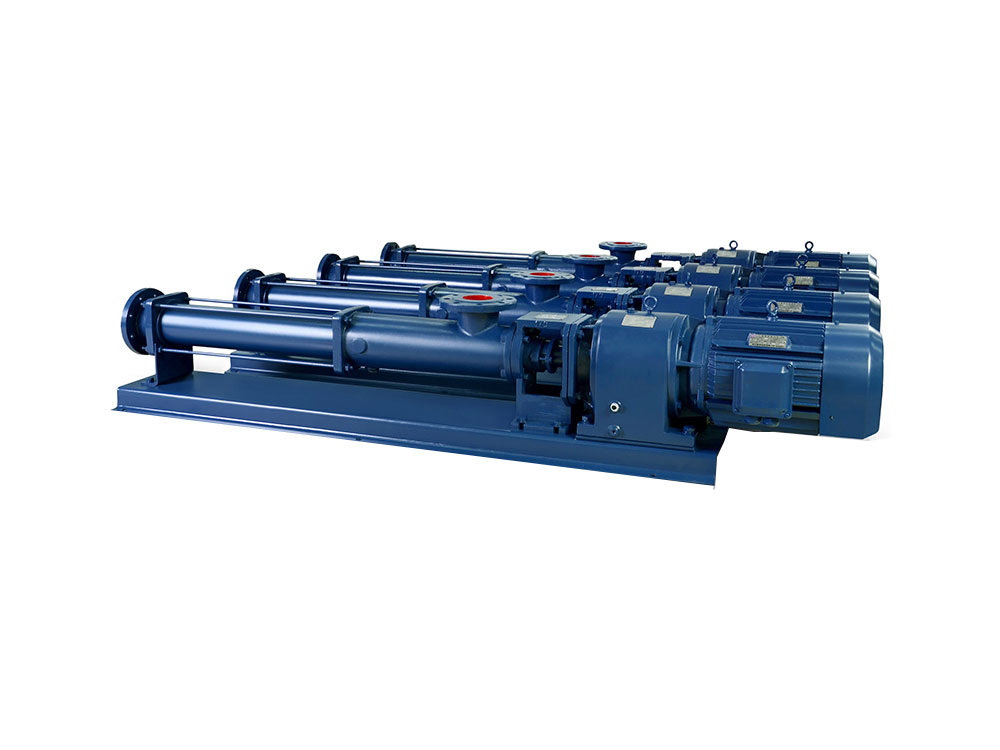Single screw pumps, also known as progressive cavity pumps, are widely used in various industries for their ability to handle challenging fluid transfer applications. Selecting the appropriate single screw pump for a specific application requires careful consideration of several key factors. In this article, we will explore the important considerations involved in the selection process of a single screw pump.

Fluid Characteristics: Understanding the characteristics of the fluid being pumped is essential in choosing the right single screw pump. Factors such as viscosity, abrasiveness, corrosiveness, and temperature play a significant role in determining the pump’s material construction, sealing requirements, and motor specifications. It is crucial to assess these properties to ensure the pump can handle the fluid effectively and maintain optimal performance.
Flow Rate and Pressure Requirements: Determining the desired flow rate and pressure is critical for selecting a single screw pump that meets the specific application’s demands. The pump’s capacity, determined by its displacement per revolution, should match the required flow rate. Additionally, the pump’s maximum pressure rating should be considered to ensure it can handle the required pressure without compromising performance or risking damage to the pump.
Solids Handling Capability: In applications where the fluid contains solids or particulate matter, the pump’s solids handling capability becomes a crucial consideration. The size, concentration, and nature of the solids should be evaluated to ensure the pump’s rotor and stator design can effectively handle the solids without clogging or excessive wear. It may be necessary to choose a pump with an enlarged inlet or a specialized design to accommodate the solids content.
Material Selection: The compatibility of the pump’s materials with the fluid being pumped is paramount. The rotor, stator, and other wetted components should be constructed from materials that are resistant to the fluid’s corrosive properties. For example, if the fluid contains aggressive chemicals, the pump may require materials such as stainless steel or specialty alloys to withstand chemical attack. Evaluating the fluid’s corrosiveness is crucial to selecting the appropriate pump materials.
Operational Environment: The operating environment should be taken into account during the pump selection process. Factors such as ambient temperature, humidity, and potentially hazardous conditions should be considered. For applications in extreme temperatures or harsh environments, pumps with additional insulation, cooling mechanisms, or explosion-proof features may be required. Assessing the operational environment helps ensure the pump’s longevity and reliability in the intended conditions.
Maintenance and Serviceability: The ease of maintenance and serviceability should not be overlooked when selecting a single screw pump. Consider the accessibility of the pump for routine inspections, cleaning, and repairs. Pumps with quick disassembly features or modular designs simplify maintenance tasks, reducing downtime and overall operational costs. Additionally, availability of spare parts and local service support should be considered for efficient and timely maintenance and repairs.
Conclusion: Selecting the right single screw pump involves careful evaluation of various factors. By considering the fluid characteristics, flow rate and pressure requirements, solids handling capability, material selection, operational environment, and maintenance considerations, you can make an informed decision. Proper pump selection ensures optimal performance, reliability, and longevity, ultimately leading to successful fluid transfer operations in a wide range of industrial applications.
